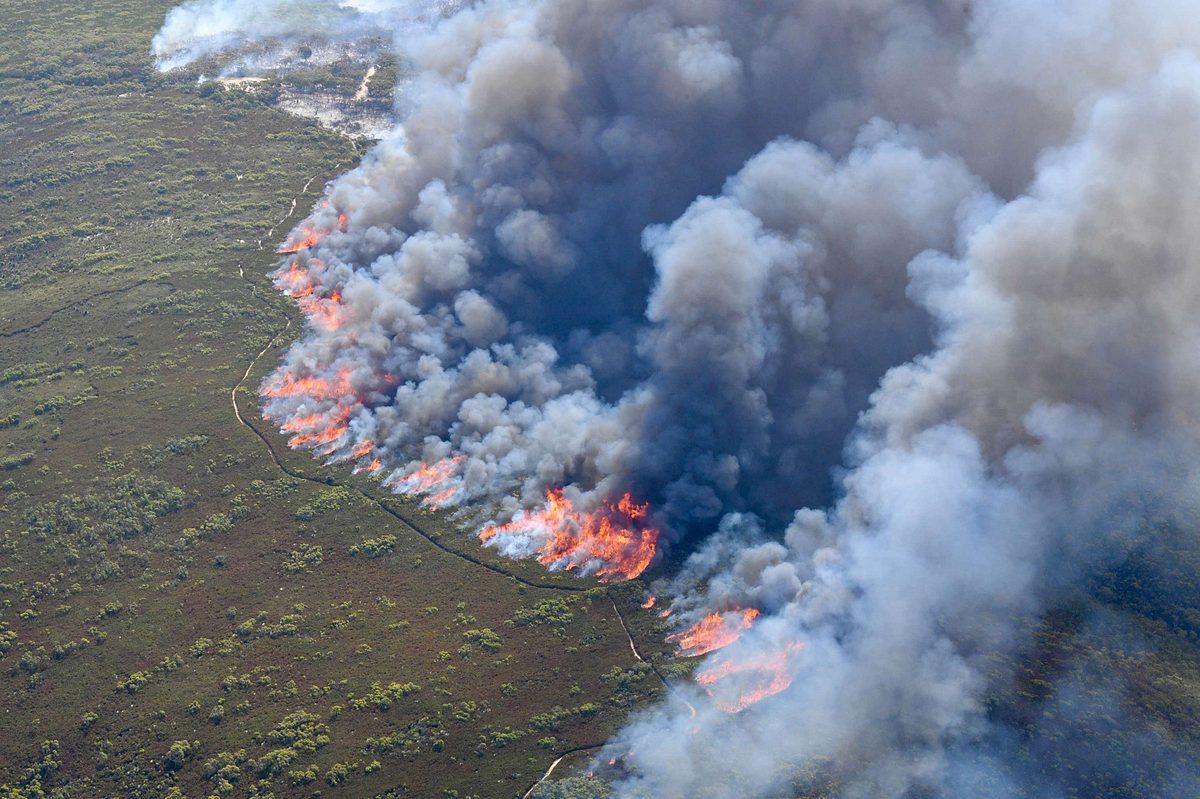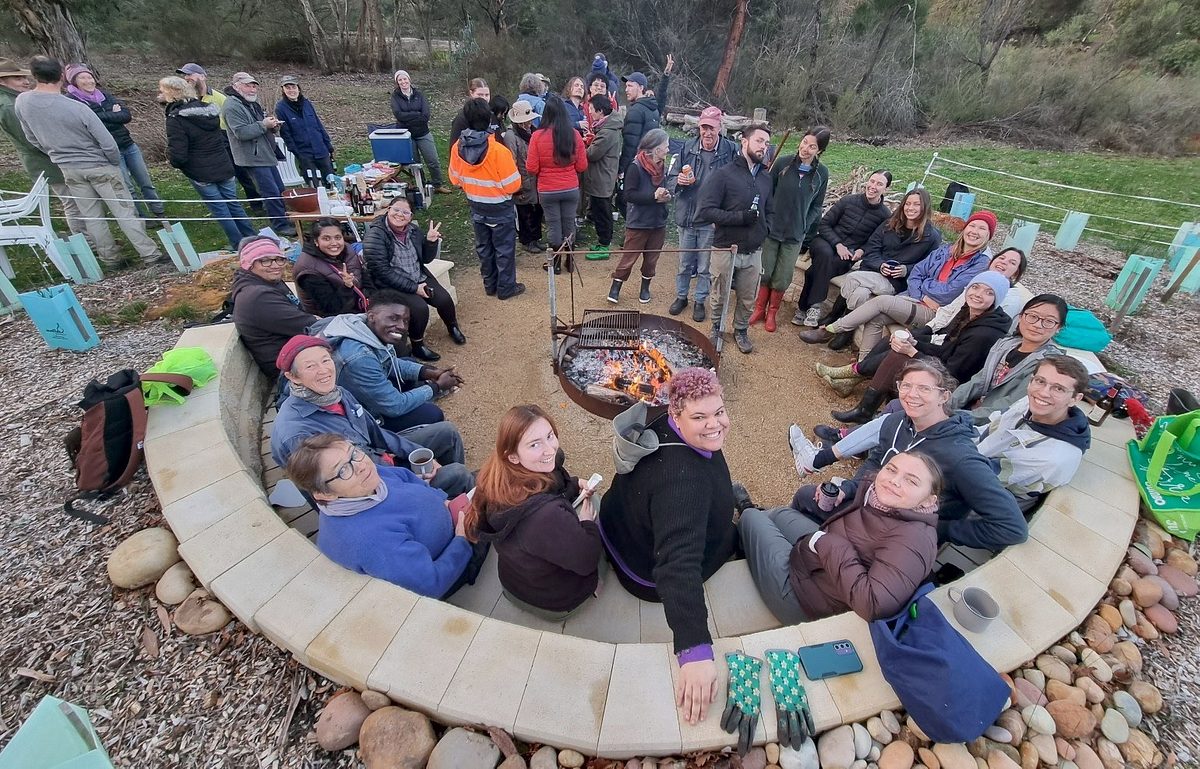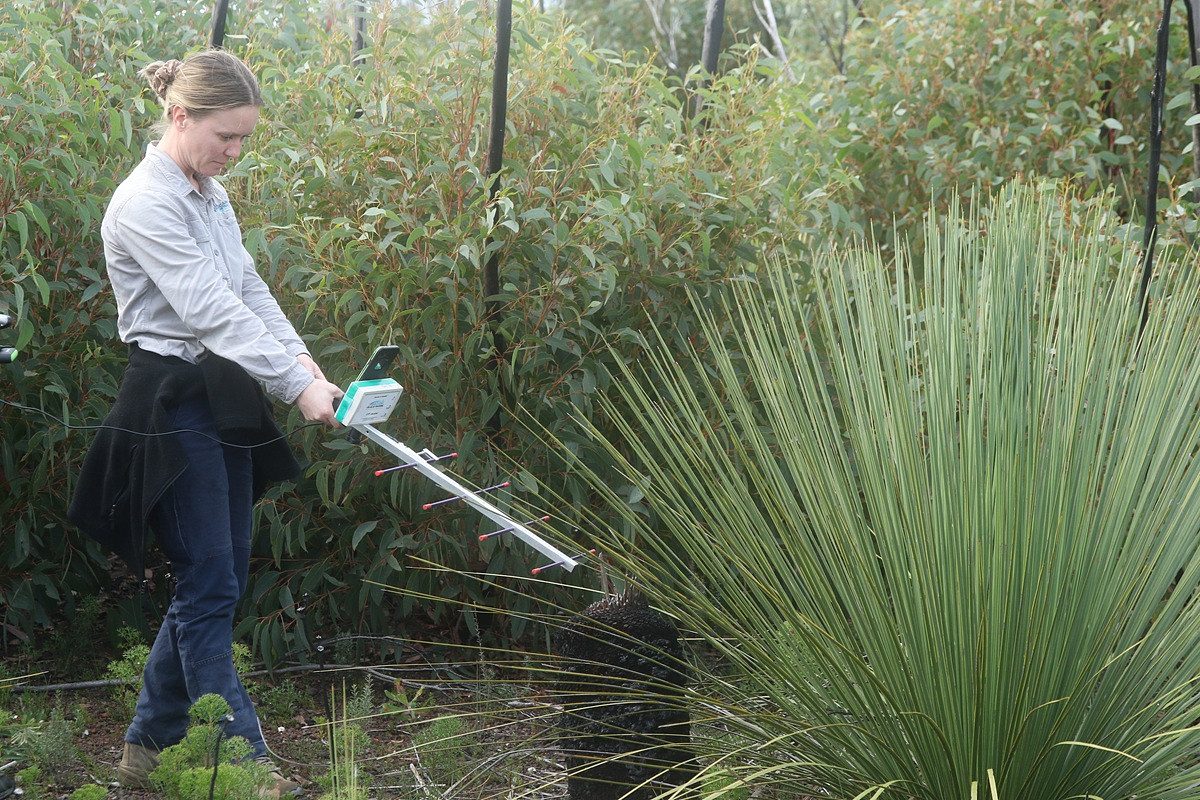Meet SA’s landscape board general managers and hear what’s in store for 2024
Eight regional landscape boards and Green Adelaide work with partners to deliver practical, on-ground programs to manage landscapes.
Each regional landscape board has a general manager responsible for managing the board’s business and staff.
Green Adelaide has a director. This is because while technically a landscape board, Green Adelaide operates as part of the Department for Environment and Water. Its focus is metropolitan Adelaide.

A statewide view
Michael Garrod is General Manager, Landscapes Hills and Fleurieu.
He’s certain that 2024 is set be an exciting and productive year for landscape boards across the state.
‘As we approach the fourth year of delivering our first 5-year landscape plans, our partnerships, projects and programs have matured, and we are seeing some fantastic outcomes in caring for the land, water and nature of SA.’ said Michael.
‘Early this year we will see the outcome of the independent review of the Landscape South Australia Act, and we are confident that it will result in meaningful and pragmatic improvements to the legislation we work under.
‘We are also excited to be finalising our individual landscape board 5-year funding agreements with the Australian Government. This will see more than $50 million in federal funding flow into South Australia for practical on-ground projects to support environmental protection, sustainable agriculture and natural resource management.
‘On top of that that, we are looking forward to playing our role in shaping up the new South Australian Biodiversity Act and Biosecurity Act, as well helping our land managers access additional resourcing for repair, protection and restoration activities through the new, voluntary Nature Repair Market established under the national Nature Repair Act 2023.’
Region by region

Michael Garrod - General Manager, Landscapes Hills and Fleurieu
‘What I’m really excited about in 2024 is our new flagship Stewardship Program.
With the introduction of the program late last year we changed our structures and had a recruitment drive to set up a network of stewardship officers across the region, focussed on supporting land managers to care for land, water and nature.
It has been really energising to see our newest colleagues hit the ground running, bringing in new ideas and energy, and helping us in delivering the Hills and Fleurieu Landscape Plan.’
Michael has worked for more than 20 years in the field of environment and natural resource management.
Before taking up the role of General Manager for Landscapes Hills and Fleurieu, Michael was Director, Community Engagement at the SA Department for Environment and Water for almost 7 years, after a 2-year stint managing community engagement for the Adelaide and Mt Lofty Ranges NRM Board.
During this time, he has led front-line teams engaging with the community to plan for and deliver collaborative environmental outcomes.

Kim Krebs - General Manager, Alinytjara Wilurara Landscape Board
‘2024 has lots on offer for the Alinytjara Wilurara region, however, what I’m most excited by is our first steps into managing 250,000 square kilometres using technology to conquer the tyranny of distance.
Buffel grass is a transformer weed that will smother desert biodiversity and exposes the desert to high chances of lightning strike wildfires.
With so much land to manage with Anangu, we’ll be deploying drones for aerial surveillance, using real-time camera traps to monitor key sites and using remote weather stations to predict when and where we should put PPE-boots onto the ground.
We’re also exploring wireless Celium traps that tell us when we’ve caught a cat or fox, rather than drive two days to check traps.
With Anangu, we’re embracing the tools of tomorrow to care for Country today.’
Kim started working in the NRM sector in 1996, as a Landcare Coordinator for a network of landcare groups in the Upper Murray of NSW. This has evolved through practical roles to leadership positions as she worked with NRM/Landscape Boards in NSW, Victoria and since 2014 in SA. Kim started her career as a glaciologist in Antarctica and is now a GM for a desert region.
She believes that although the locations may change, the pursuit remains the same: to look after the land so that the land can look after us.

Jonathan (Jono) Clark – General Manager, Eyre Peninsula Landscape Board
‘What I’m really excited about in 2024 is kicking off new projects including a focus on threatened drooping sheoak (Allocasuarina verticillata) grassy woodland habitat as well as projects to control feral deer and goats; and eliminating cats and rats on Flinders Island to create a safe haven for threatened species reintroduction.
Another exciting new initiative is the state-wide carbon outreach program that will allow us to work with land managers to increase their knowledge of greenhouse gas emission management and integrate low emissions technologies and practices into their operations. We are looking at opportunities to increase First Nations involvement in all of these initiatives.’
Jonathan (known as Jono to most) has been the GM of the EP Landscape Board since its formation in July 2020. Prior to that he worked for the former EP Natural Resources Management Board since 2005, including leading the organisation from 2015. He has a background in geology, hydrogeology, environmental science and water resources management.

Tony Fox - General Manager, Northern and Yorke Landscape Board
‘In the Northern and Yorke region, we’re excited about using evolving technology to help manage weeds and pest animals. Not long ago it seemed implausible to get on top of some of the pest issues our region faces, but technology is creating efficiencies that allow us to do a lot more. Innovations like thermal imagery scopes, tracking collars, remote sensing camera arrays and drones help us to be more targeted and effective in our control techniques.’
Tony has held the general manager position at the Northern and Yorke Landscape Board for nearly 5 years and previously held management positions in natural resource management for the Department for Environment and Water. He has a strong background in the viticulture industry working in Coonawarra and the Adelaide Hills regions, and continues this interest with a hobby vineyard, producing a red wine called Tromper.

Steve Bourne - General Manager, Limestone Coast Landscape Board
‘In 2024 the Limestone Coast Landscape Board has two major projects focussed on the sustainability and prosperity of the Limestone Coast region.
We will be continuing the critical work of amending the Lower Limestone Coast Water Allocation Plan. To ensure the long-term security and sustainability of the resource the plan will need to balance the environmental, social and economic needs of our region.
The Limestone Coast community is also at a point where we need to choose between having vibrant and productive primary industries with healthy natural bushland or allow ever-increasing populations of feral deer to degrade our environment and erode the profits of primary producers.
The Limestone Coast Feral Deer Eradication Program will continue to support landholders to remove the declared pest from the landscape.’
Steve joined the Limestone Coast Landscape Board in October 2020 after working with Naracoorte Lucindale Council for 9 years. Before this he was the manager of Naracoorte Caves World Heritage Area. After university, his early career was in the agriculture industry, mostly as a shearer. This background has given him an understanding of community and environmental issues, and experience in all tiers of government.

Andrew Meddle - General Manager, Murraylands and Riverland Landscape Board
‘2024 will be a busy year. The re-introduction of Murray crayfish into South Australia is getting set for a second release. This project has been a success in so many ways and I’m so pleased about what this means for our First Nations partners. Their joy about the return of a nartji and pride in being involved is contagious.
I’m also really looking forward to supporting the growth of our staff into the future leaders for our organisation. We’re rolling out a new future leader program that will strengthen our team culture while supporting individuals’ career aspirations.’
Andrew is originally from the United Kingdom, where he held senior roles in central, regional and local government in the south and east before migrating to Australia in 2012.
He worked as the General Manager Sustainable Communities at the Rural City of Murray Bridge from 2013 until 2019, followed by a stint as CEO at the City of Mount Gambier and then taking up the general manager role at Murraylands and Riverland Landscape Board in late 2020.
This background saw him gain extensive experience in working and engaging with communities to deliver joint goals, as well as managing resources efficiently to ensure sustainable outcomes.

Brenton Grear - Director, Green Adelaide
‘In 2024 I’m excited to progress our ambition of reintroducing platypus to the River Torrens / Karrawirra Pari as we continue to restore this urban river.
Another focus will be finalising and starting implementation of Adelaide’s first metropolitan-wide Urban Greening Strategy on behalf of the state government.
As usual we will be constantly seeking ways to improve the outcomes from our grant programs to create a cooler, greener and wilder Adelaide, as we continue to encourage Adelaideans to appreciate the value of living in a biodiverse and green city and deliver environmental outcomes that exemplify why Adelaide is Australia’s first National Park City.
All this while working collaboratively with the state’s other landscape boards to ensure urban environment management is a worthy focus for the Landscapes SA community.'
Brenton leads the strategy and operations of Green Adelaide. He has had a long career in land management, ecological restoration and natural resources management throughout SA. By trade, he is a geographer and in Brenton’s free time he loves surfing, multi-day hikes, and collecting vintage surfboards.

Will Durack - General Manager, Kangaroo Island Landscape Board
'2024 represents a huge suite of opportunities for Kangaroo Island and the Landscape Board.
The remaining feral pigs will be pursued, the limits of feral cat eradication technology pushed, and threatened species safeguarded, our water affecting activities policy reviewed with a significant focus around the positive role of our outstanding native vegetation, coastal projects delivered, weeds controlled and farming practices to deliver increased productivity coupled with environmental outcomes will be explored and implemented.
These projects and more all contribute to our vision of "Nurturing Kangaroo Island’s Landscape Together to create a thriving, sustainable future".'
Will’s background is in Indigenous land and sea management in central and northwestern WA. While Indigenous engagement on KI is an emerging area, Will believes that working with Indigenous and rural communities has a strong common link. That being the importance of understanding what people care about, what people know about and from there supporting to maximise outcomes around these things. This belief forms a central thread in the running of the Kangaroo Island Landscape Board.

Jodie Gregg-Smith - General Manager, South Australian Arid Lands Landscape Board
‘The SA Arid Lands presents as many complexities as it does amazing landscapes, important cultural histories and ever-growing industries, so what I am committed to this year supported by a proactive board and committed staff is how we work smarter and better in partnership to overcome threats to the region’s sustainability.
We have spent the past couple of years really harnessing like-minded community members, landholders, industry groups and decision makers.
This year I am excited about these foundational partnerships showing real action and significant outcomes in reducing total grazing pressure in the region, focusing particularly on kangaroos and goats – but all large feral herbivores.
The impact on endangered ecosystems and critical habitat for our threatened species throughout the arid zone, in addition to the competition created for our pastoral industries by native and feral herbivores, are among our top priorities and growing concerns as times get drier.
There are many challenges, tackling this one will have a knock-on effect to many others. Removing a quantum of extra mouths to feed means we replenish pasture and habitat for the species that are supposed to be here and protect culturally precious places throughout the region.'
Jodie has worked in SAAL for almost 9 years and has been the GM or equivalent for over 6 years. A public servant of 30 years, her passion and background are in regional and community development. A career-long advocate of regional and remote communities having a voice in government decision-making still drives Jodie as much today as it did when she started her public sector career in policing, before moving to the education sector focusing on social inclusion, and then landing in the environment field.
'It is here – where integrated approaches to managing the environment continues the trend of ‘community at the centre' of sustainable change and shared responsibility for the things that sustain healthy and prosperous communities,' said Jodie.



